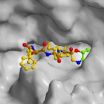(Press-News.org) Primary school children who don't like eating fruit and vegetables are 13 times more likely to develop functional constipation than children who do, according to a study in the December issue of the Journal of Clinical Nursing. Drinking less than 400ml of fluid a day also significantly increases the risk.
Dr Moon Fai Chan, assistant professor at the National University of Singapore, teamed up with Yuk Ling Chan, from the Hong Kong Polytechnic University, to study the diet and toileting habits of 383 children aged from eight to ten from a school in Hong Kong.
Fifty-one per cent were boys and children who were on regular medication or who paid regular hospital or clinic visits were excluded. Seventy per cent of the children who took part in the study were ten-years-old, 22 per cent were nine and eight per cent were eight.
"A number of studies have suggested that functional constipation - which is due to dietary habits, environmental habits and psychosocial factors rather than a particular health problem - is getting worse among school-age children" says Dr Moon Fai Chan from the Alice Lee Centre for Nursing Study at the University.
"It is estimated that functional constipation accounts for 95 per cent of cases of constipation affecting children once they pass infancy. The condition has serious consequences, as it can cause a wide range of distressing emotional and physical problems such as stress, soiling, problems at school, damaged self-confidence and reduced social interaction."
Key findings of the study included:
Seven per cent of the children who took part suffered from functional constipation and there were clear dietary differences between the children who did and did not have problems.
Girls were more likely to have functional constipation than boys (8.2 per cent versus 6.6 per cent) and nine-year-olds were more likely to report problems (13.3 per cent) than eight-year-olds (10 per cent) and ten-year-olds (5.2 per cent).
Children who only drank 200ml to 400ml of fluid a day were eight times more likely to experience problems than children who drank 600ml to 800ml and 14 times more likely than children who drank a litre or more.
Children who said they did not like fruit or vegetables were 13 times more likely to suffer from functional constipation than children who did.
Nine out of ten children refused to use the school toilets for bowel movements and the figure was the same for children with and without constipation.
The biggest problems with school toilets were that children preferred to go at home. They also cited lack of toilet paper and dirty toilets.
"When we compared our findings with previous studies we found that the levels of functional constipation among Hong Kong school children was higher than those in the USA and UK, but similar to Italy" says Dr Chan.
The authors have made a number of recommendations that they feel would help to tackle the problem. They suggest that:
Primary schools should work with healthcare professionals to make children more aware of the problem, with regular healthcare education sessions in classrooms and at assemblies.
Parents need to be educated about functional constipation so that they can spot problems in their children and make sure that their diet provides sufficient fluid, vegetables and fruit. They should also remind their children to pay regular toilet visits at school.
School tuck-shops should stock high-fibre snacks such as popcorn, fresh food and dried fruit, instead of crisps and sweets.
Children should be encouraged to drink plain water during lessons and drinking fountains should be installed.
School toilets should be more user-friendly, private and well stocked with paper so that children feel more comfortable using them.
"We hope that this study will help to raise awareness of functional constipation, which can cause children real physical and emotional distress and seriously affect their quality of life" says Dr Chan.
###
Notes to editors
Investigating factors associated with functional constipation of primary school children in Hong Kong. Chan MF and Chan YL. Journal of Clinical Nursing. 19, pp3390-3400. (December 2010). DOI: 10.1111/j.1365-2702.2010.03366.x
The Journal of Clinical Nursing (JCN) is an international, peer reviewed, scientific journal that seeks to promote the development and exchange of knowledge that is directly relevant to all spheres of nursing and midwifery practice. The primary aim is to promote a high standard of clinically related scholarship which supports the practice and discipline of nursing. JCN publishes high quality papers on issues related to clinical nursing, regardless of where care is provided. This includes - but is not limited to - ambulatory care, community care, family care, home, hospital, practice, primary and secondary, and public health. http://onlinelibrary.wiley.com/journal/10.1111/(ISSN)1365-2702
Wiley-Blackwell is the international scientific, technical, medical, and scholarly publishing business of John Wiley & Sons, with strengths in every major academic and professional field and partnerships with many of the world's leading societies. Wiley-Blackwell publishes nearly 1,500 peer-reviewed journals and 1,500+ new books annually in print and online, as well as databases, major reference works and laboratory protocols. For more information, please visit http://www.wileyblackwell.com/ or our new online platform, Wiley Online Library (http://www.wileyonlinelibrary.com/), one of the world's most extensive multidisciplinary collections of online resources, covering life, health, social and physical sciences, and humanities.
Children who don't like fruit and vegetables are 13 times more likely to be constipated
Study includes recommendations for parents and schools
2010-12-14
ELSE PRESS RELEASES FROM THIS DATE:
Jellyfish counterattack in winter
2010-12-14
A study carried out over 50 years by an international team, with the participation of the Balearic Oceanography Centre of the Spanish Institute of Oceanography (IEO) has confirmed an increase in the size and intensity of proliferations of the jellyfish Pelagia noctiluca. There are several complex reasons for this - over-fishing and the current increase in sea water temperatures.
"Since 2002, these organisms have become increasingly frequently found in the north east Atlantic in winter, since winters have been warmer, and they have tended to appear earlier and spend more ...
How cells export and embed proteins in the membrane
2010-12-14
Like an overprotective parent on the first day of school, a targeting factor sometimes needs a little push to let go of its cargo. Scientists at the European Molecular Biology Laboratory (EMBL) in Grenoble, France, have visualised one such hand-over. They were the first to determine the structure of a ribosome-protein complex involved in carrying nascent proteins out of the cell. Their work, published today in Nature Structural and Molecular Biology, could increase understanding of illnesses such as cystic fibrosis and some forms of Parkinson's disease, in which improper ...
Smoking behind more than a third of severe rheumatoid arthritis cases
2010-12-14
Smoking accounts for more than a third of cases of the most severe and common form of rheumatoid arthritis, indicates research published online in the Annals of the Rheumatic Diseases.
And it accounts for more than half of cases in people who are genetically susceptible to development of the disease, finds the study.
The researchers base their findings on more than 1,200 people with rheumatoid arthritis and 871 people matched for age and sex, but free of the disease. The patients came from 19 health clinics in south and central Sweden, while their healthy peers were ...
UK ill prepared for 'epidemic' of degenerative valvular heart disease
2010-12-14
The UK is poorly prepared for the forthcoming epidemic of degenerative valvular heart disease, prompted by a rapidly ageing population, say leading experts in the journal Heart.
The prevalence of valvular heart disease, or VHD for short, rises with age. European and US data indicate that more than 13% of those aged 75 and above have the progressive condition. And by 2018, there will be an estimated 4 million people in the UK aged between 75 and 84.
The exact causes of VHD have been poorly researched, but the condition is associated with a great deal of ill health, poor ...
UK medical student ophthalmology teaching falling short
2010-12-14
UK medical schools are failing to comply with the recommended curriculum for ophthalmology, set out by the International Council of Ophthalmologists (ICO), suggests a survey published online in the British Journal of Ophthalmology.
Amid concerns that the specialty was being squeezed out of undergraduate education, the council urged medical schools to make it a core subject and produced guidance to help them do this.
But a questionnaire sent to 32 UK medical schools, which prompted 18 to complete returns, shows that while all include ophthalmology in the curriculum, ...
Unlawful killing of newborns soon after birth 5 times higher than thought
2010-12-14
Although rare, the true incidence of neonaticides - the unlawful killing of a baby within the first 24 hours of its life - is more than five times as common as official estimates suggest, suggests research published online in the Fetal and Neonatal edition of the Archives of Disease in Childhood.
Low maternal self esteem and emotional immaturity, rather than obvious mental illness or social disadvantage, are key drivers, the research indicates.
The researchers reviewed the case records of 26 courts in three regions of France, involving the death of a child within the ...
A new mechanism for reversible proteasome inhibition
2010-12-14
What makes cancer cells so dangerous is that they grow in an unregulated way and proliferate much faster than other cells. The proteasome, a large protein complex, plays a key role in this process: By breaking down used proteins for recycling, it clears the way for the next cycle. New hope was spawned several years ago with the discovery that inhibiting proteasomes can be used as a means to put the brakes on cell growth. In the mean time, the first drug using this approach, Bortezomib, generates revenues in excess of one billion U.S. dollars per year. However, it also inhibits ...
A study analyzes the movement of tree sap
2010-12-14
The researchers decided to embark on this study in order to find out which mechanisms are used by plants when they extract water from very dry or somewhat inhospitable land. "In the case of mangrove swamps, for example, the plants are able to extract freshwater from a saltwater environment, despite the fact that the osmotic pressure should make quite the opposite happen", explains Professor José Luis Pérez Díaz, who studies this type of relatively unknown phenomenon as part of a new line of research that the Department of Mechanical Engineering at UC3M has begun.
The ...
Choose a movie's plot -- while you watch it
2010-12-14
Tel Aviv ― Will Rona and Sol kiss and seal their fate as a couple forever, or will Sol answer the ringing phone and change the course of history? A new movie format developed by Tel Aviv University lets the viewer decide.
Utilizing complicated video coding procedures, the new format provides smooth interaction and transition between scenes as audience members watch ― and determine the plot of ― Turbulence, created by Prof. Nitzan Ben Shaul of Tel Aviv University's Department of Film and Television. Made with his unique scene-sequencing technique, Turbulence ...
Earthshaking possibilities may limit underground storage of carbon dioxide
2010-12-14
Storing massive amounts of carbon dioxide underground in an effort to combat global warming may not be easy to do because of the potential for triggering small- to moderate-sized earthquakes, according to Stanford geophysicist Mark Zoback.
While those earthquakes are unlikely to be big enough to hurt people or property, they could still cause serious problems for the reservoirs containing the gas.
"It is not the shaking an earthquake causes at the surface that creates the hazard in this instance, it is what it does at depth," Zoback said. "It may not take a very big ...
LAST 30 PRESS RELEASES:
Hairdressers could be a secret weapon in tackling climate change, new research finds
Genetic risk for mental illness is far less disorder-specific than clinicians have assumed, massive Swedish study reveals
A therapeutic target that would curb the spread of coronaviruses has been identified
Modern twist on wildfire management methods found also to have a bonus feature that protects water supplies
AI enables defect-aware prediction of metal 3D-printed part quality
Miniscule fossil discovery reveals fresh clues into the evolution of the earliest-known relative of all primates
World Water Day 2026: Applied Microbiology International to hold Gender Equality and Water webinar
The unprecedented transformation in energy: The Third Energy Revolution toward carbon neutrality
Building on the far side: AI analysis suggests sturdier foundation for future lunar bases
Far-field superresolution imaging via k-space superoscillation
10 Years, 70% shift: Wastewater upgrades quietly transform river microbiomes
Why does chronic back pain make everyday sounds feel harsher? Brain imaging study points to a treatable cause
Video messaging effectiveness depends on quality of streaming experience, research shows
Introducing the “bloom” cycle, or why plants are not stupid
The Lancet Oncology: Breast cancer remains the most common cancer among women worldwide, with annual cases expected to reach over 3.5 million by 2050
Improve education and transitional support for autistic people to prevent death by suicide, say experts
GLP-1 drugs like Ozempic could cut risk of major heart complications after heart attack, study finds
Study finds Earth may have twice as many vertebrate species as previously thought
NYU Langone orthopedic surgeons present latest clinical findings and research at AAOS 2026
New journal highlights how artificial intelligence can help solve global environmental crises
Study identifies three diverging global AI pathways shaping the future of technology and governance
Machine learning advances non targeted detection of environmental pollutants
ACP advises all adults 75 or older get a protein subunit RSV vaccine
New study finds earliest evidence of big land predators hunting plant-eaters
Newer groundwater associated with higher risk of Parkinson’s disease
New study identifies growth hormone receptor as possible target to improve lung cancer treatment
Routine helps children adjust to school, but harsh parenting may undo benefits
IEEE honors Pitt’s Fang Peng with medal in power engineering
SwRI and the NPSS Consortium release new version of NPSS® software with improved functionality
Study identifies molecular cause of taste loss after COVID
[Press-News.org] Children who don't like fruit and vegetables are 13 times more likely to be constipatedStudy includes recommendations for parents and schools




